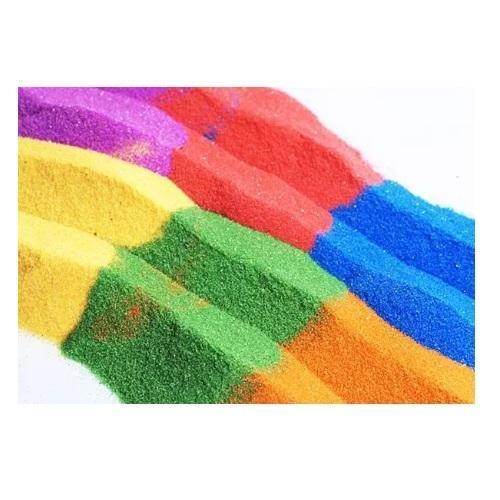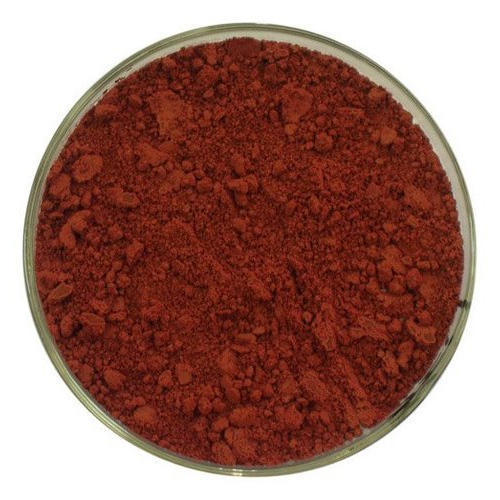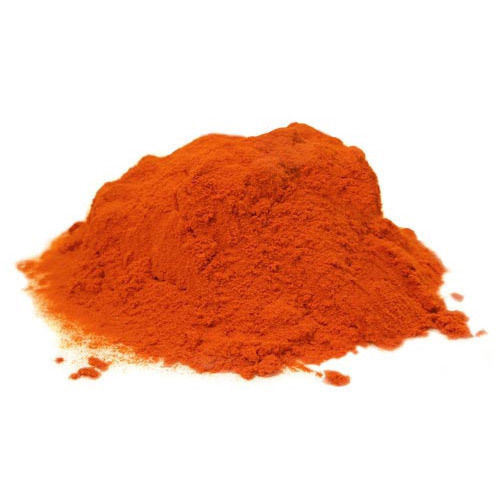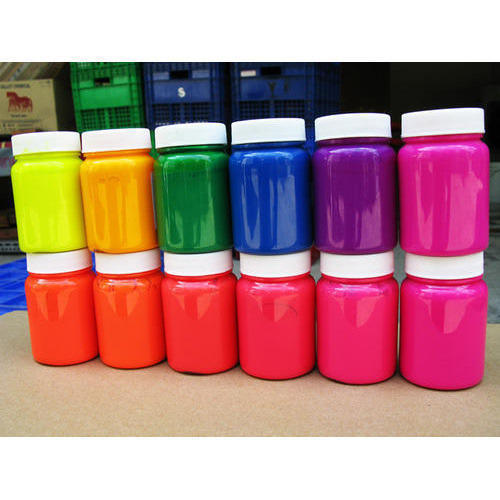Remazol Dyes
Remazol Dyes Specification
- Solubility
- Soluble in Water
- Molecular Formula
- C29H19ClN7Na3O11S3 (Representative)
- Density
- 1.6 Gram per cubic centimeter(g/cm3)
- Molecular Weight
- 917.14 g/mol (Representative)
- Structural Formula
- Varies by dye (Reactive group attached to chromophore)
- EINECS No
- 235-424-1
- CAS No
- 12225-86-4
- Melting Point
- Decomposes before melting
- Physical Form
- Solid
- Other Names
- Reactive Dyes, Vinyl Sulphone Dyes
- Appearance
- Colored Powder / Granular
- HS Code
- 320416
- Resistance
- Good washing, perspiration and light fastness
- Ph Level
- 6-8 (1% solution)
- Smell
- Odorless
- Shape
- Powder / Granules
- Poisonous
- Non-poisonous
- Refractive Rate
- Not Determined
- Grade
- Industrial Grade, Textile Grade
- Purity
- 98% Min.
- Taste
- Odorless
- Application
- Textile Dyeing and Printing
- Compatibility
- Suitable for cotton, viscose, silk and blends
- Packing Size
- 25 kg / 50 kg HDPE Bags with Inner Liner
- Reactive Group
- Vinyl Sulphone & other functional groups
- Brand Name
- Remazol
- Shelf Life
- 2 years in original packaging
- Eco-Friendliness
- Compliant with major ecological standards
- Ionic Nature
- Anionic
- Storage
- Keep in a cool, dry place with tight container
- Color Shade
- Wide range available (Yellow, Red, Blue, Black, etc.)
Remazol Dyes Trade Information
- Minimum Order Quantity
- 1 , , Kilograms
- Supply Ability
- 50000 Kilograms Per Week
- Delivery Time
- 3-7 Days
- Main Export Market(s)
- Asia, Eastern Europe, North America, Australia, Central America, South America, Western Europe, Middle East
About Remazol Dyes
Versatile Application and Superb Compatibility
Remazol Dyes stand out for their applicability across a broad range of textile materials, from pure cotton and viscose to silk and blended fabrics. The presence of vinyl sulphone and other functional groups enhances fixation and brilliance, making these dyes an ideal choice for both dyeing and printing processes in textile manufacturing.
Eco-Friendly and Industrial-Grade Quality
Committed to sustainable industry practices, Remazol Dyes are produced in compliance with major ecological standards. Their high purity, non-poisonous nature, and odorless formulation make them safe for use in textile applications. Available in industrial and textile grades, these dyes offer reliability and consistent results for exporters, manufacturers, and suppliers.
FAQs of Remazol Dyes:
Q: How should Remazol Dyes be stored to maintain their shelf life?
A: Remazol Dyes must be kept in a cool, dry place, tightly sealed in their original HDPE bags with inner liners. Proper storage conditions help preserve their integrity, ensuring a shelf life of up to two years.Q: What is the process for using Remazol Dyes in textile dyeing?
A: Remazol Dyes are mixed with water to create a solution, then applied to textiles via dyeing or printing processes. Their anionic nature and reactive vinyl sulphone group enable strong bonding with cotton, viscose, silk, or blends, resulting in vibrant, durable colors.Q: When is it appropriate to use Remazol Dyes for textile applications?
A: Remazol Dyes are suitable whenever high-color fastness and ecological compliance are required in textile coloring. Their versatility makes them ideal for both mass production and custom dyeing jobs in the industry.Q: Where can Remazol Dyes be sourced in India?
A: Remazol Dyes are available through authorized dealers, exporters, manufacturers, and suppliers throughout India, ensuring reliable access for textile processors and industrial users.Q: What benefits do Remazol Dyes offer compared to other dye types?
A: Remazol Dyes provide excellent washing, perspiration, and light fastness, vibrant shades, and strong fixation on textile fibers. Their eco-friendly formulation and compatibility with multiple fabrics deliver both performance and safety in dyeing operations.Q: Are Remazol Dyes safe for use in all textile applications?
A: Yes, Remazol Dyes are odorless, non-poisonous, and comply with major ecological standards. Their industrial and textile grade quality ensures safe usage across various textile fiber types.

Price:
- 50
- 100
- 200
- 250
- 500
- 1000+
More Products in Fine Chemical Category
Metal Complex Dyes
Price 85 INR
Minimum Order Quantity : 1 Kilograms
Physical Form : Solid
Solubility : Soluble in organic solvents, partially soluble in water
Grade : Industrial Grade, Textile Grade
Purity : >98%
Acid Brown Dyes
Price 60 INR / Kilograms
Minimum Order Quantity : 1 , , Kilograms
Physical Form : Solid
Solubility : Soluble in water
Grade : Industrial Grade
Purity : Up to 98%
Synthetic Dyes
Price 60 INR
Minimum Order Quantity : 1 Kilograms
Physical Form : Solid
Solubility : Soluble in Water
Grade : Industrial Grade
Purity : 99%
FRP Pigment
Price 100 INR
Minimum Order Quantity : 1 Kilograms
Physical Form : Other, Thick Viscous Liquid
Solubility : Insoluble in Water
Grade : Industrial Grade
Purity : 99%
 |
MEGHA INTERNATIONAL
All Rights Reserved.(Terms of Use) Developed and Managed by Infocom Network Private Limited. |
 English
English Spanish
Spanish French
French German
German Italian
Italian Chinese (Simplified)
Chinese (Simplified) Japanese
Japanese Korean
Korean Arabic
Arabic Portuguese
Portuguese
 Send Inquiry
Send Inquiry




